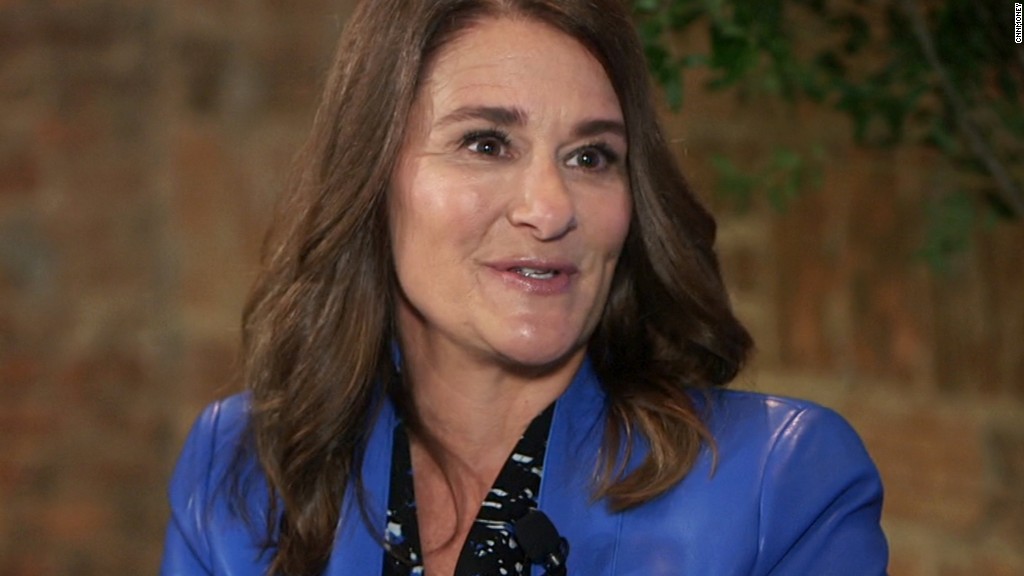
Washington D.C. is home to some of America's most powerful people and institutions. And yet nearly one-fifth of the District's population is living in poverty.
That's because some of the poorest parts of Washington D.C. have been left out of the city's recovery from the Great Recession.
JPMorgan Chase is hoping to ease this inequality problem by investing $10 million in Washington D.C. over three years. The bank is focusing on two of the district's seemingly-forgotten neighborhoods: Wards 7 and 8.
"D.C. is literally a tale of two different cities," JPMorgan Chase CEO Jamie Dimon said on Monday from a conference in Manhattan.
Dimon hopes the Washington D.C. investment will "lift up" residents in these underserved neighborhoods. He said the $10 million "may be the beginning of a much bigger thing."
JPMorgan (JPM) wants to encourage "inclusive growth" by deploying capital towards affordable housing, jobs-skills training and loans to minority-owned small businesses.
"We've done a terrible job -- we being collectively the leadership of America -- in trying to make sure all of our citizens don't fall behind," Dimon said from Fortune and Time's CEO Initiative. He urged business leaders and government to do more to address inequality by improving education, job training and relocation services.
JPMorgan's focus on Washington D.C. comes three years after the bank made a huge bet on Detroit by agreeing to pump $100 million into the bankrupt city over five years. JPMorgan claimed early success and eventually upped the investment to $150 million.
"If we can help in Detroit, we can help anywhere," Dimon said.
Related: Melinda Gates on women's poverty: Power is in the money
Washington D.C. is an obvious candidate for assistance from JPMorgan, which hauled in a record $24 billion in profits last year. While tony neighborhoods like Georgetown are booming, homelessness is a real problem in other sections.
The District has one of the highest poverty rates in the country, with 17.3% of its residents over the past three years living in poverty, according to government statistics.
That's despite the fact that Washington D.C.'s economy grew significantly faster than the overall economy last year. And its per capita income of $75,596 is more than 50% higher than the national average.
"There is this incredible income disparity," Peter Scher, JPMorgan's head of corporate responsibility, told CNNMoney.
Wards 7 and 8 are at the heart of Washington D.C.'s inequality issues. JPMorgan noted that these neighborhoods face high poverty and unemployment rates, limited affordable housing and the loss of businesses.
Washington D.C. Mayor Muriel Bowser called JPMorgan's commitment to the city a "welcome addition" to grassroots efforts already in the works.
"We know that while D.C.'s economy is thriving, not enough residents are benefiting from our city's prosperity," Bowser said in a statement that included support from business and community leaders.
JPMorgan is devoting $5 million to try to address gentrification concerns raised by the development of the 11th Street Bridge Park, a project that will link some of the area's poorest neighborhoods with more affluent ones. Some fear this development will jack up rents, pushing out less affluent residents.
"The potential for lower and middle income people to be displaced by this is real," said Scher.
Related: JPMorgan gives $1 million to fight hate groups
Of course, JPMorgan also has a business reason for pumping money into the nation's capital. Scher acknowledges that the Washington D.C. metro area is a "growing presence for us" and one of the biggest economic regions in the U.S.
Dimon applauded collaboration between local nonprofits in Washington D.C. and Bowser. He contrasted that with the "train wreck" being caused by "mismanagement" of other cities and states he declined to name.
"Some governments, they are corrupt...They're stuck in the mud, so don't help them," Dimon told CEOs in the audience.


